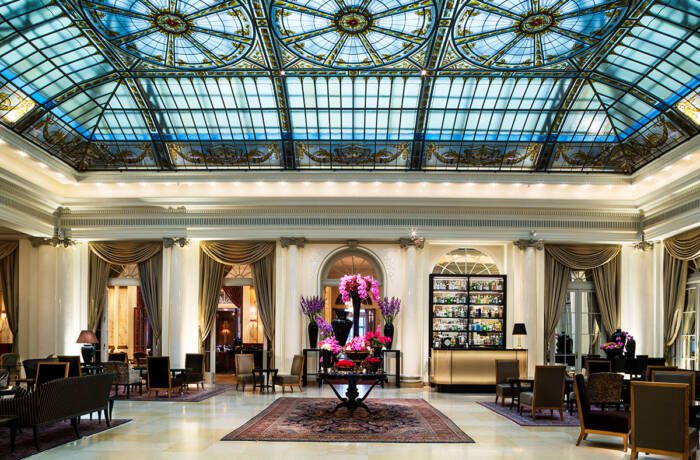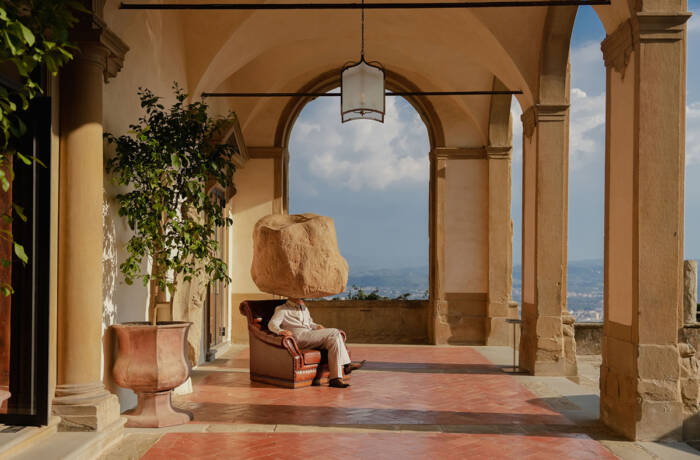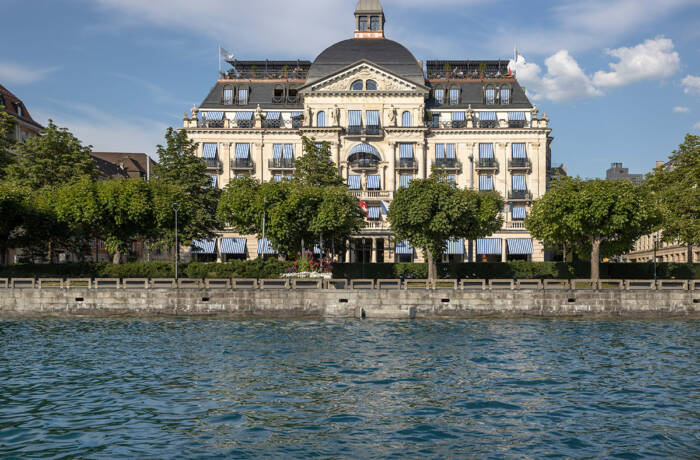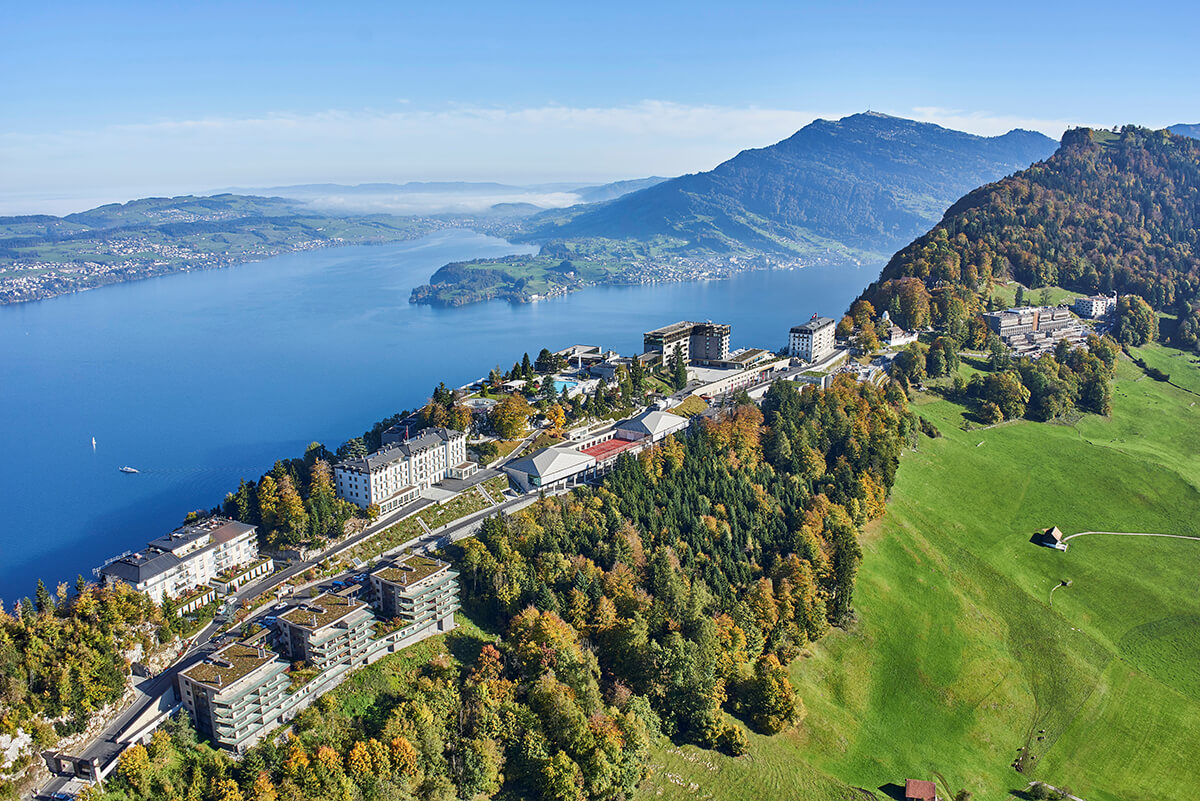
The Bürgenstock resort complex sits atop a mountain ridge overlooking Lake Lucerne
At the new Bürgenstock resort in Switzerland, medical science meets luxury indulgence. Darius Sanai gets checked out at the spectacular retreat with high-end dining as well as top doctors and testing facilities
Medical spa. Two words to strike fear into the mind of any traveller; or into my mind, at least. For in my experience, such places fall into one of two categories. One follows the pseudo- scientific line: where you are ushered into a world of energy types, detox, alkaline cures and naturopathy. That’s not to denigrate mystical and ancient health rites, many of which might have a positive psychological effect in these stressed-out times, but if I want to know if there’s something wrong with me, I want to really know, not be treated by someone who tells me I need to eat spinach to increase my body’s pH and therefore its alkalinity (if our stomachs were not highly acidic, we would be dead).
The other type of medical spa historically employs real doctors, but in a joyless, alcohol-free environment more akin to a prison camp than a luxury retreat, so, while you may emerge genuinely more healthy and with a good idea of what’s gone wrong with you, you’re also likely to decide you’d rather die young than return.
Follow LUX on Instagram: the.official.lux.magazine
So it was with fascination that I approached the Waldhotel at Bürgenstock, in Switzerland. Bürgenstock has a place in European history, as a hotel, once beloved of Hollywood stars (Audrey Hepburn lived here), high up overlooking Lake Lucerne. It was recently developed into a series of super-luxe hotels, including what claims to be one of Switzerland’s best medical hotels, and restaurants, by its new owners from Qatar. I decided to check in for a couple of days for a full checkout; like many men, I have no qualms about spending thousands maintaining my collection of classic cars in perfect shape, but have never even had so much as a spark-plug examination on my own body.
Bürgenstock sent me a very thorough, and beautifully presented, programme. I would stay at the five-star Waldhotel for three days; after my blood was taken on the first day, I would mingle a series of tests and scans (the most important one being a full examination by a cardiologist) with feel-good spa treatments, relaxation in the pools, and some dining in their restaurants.
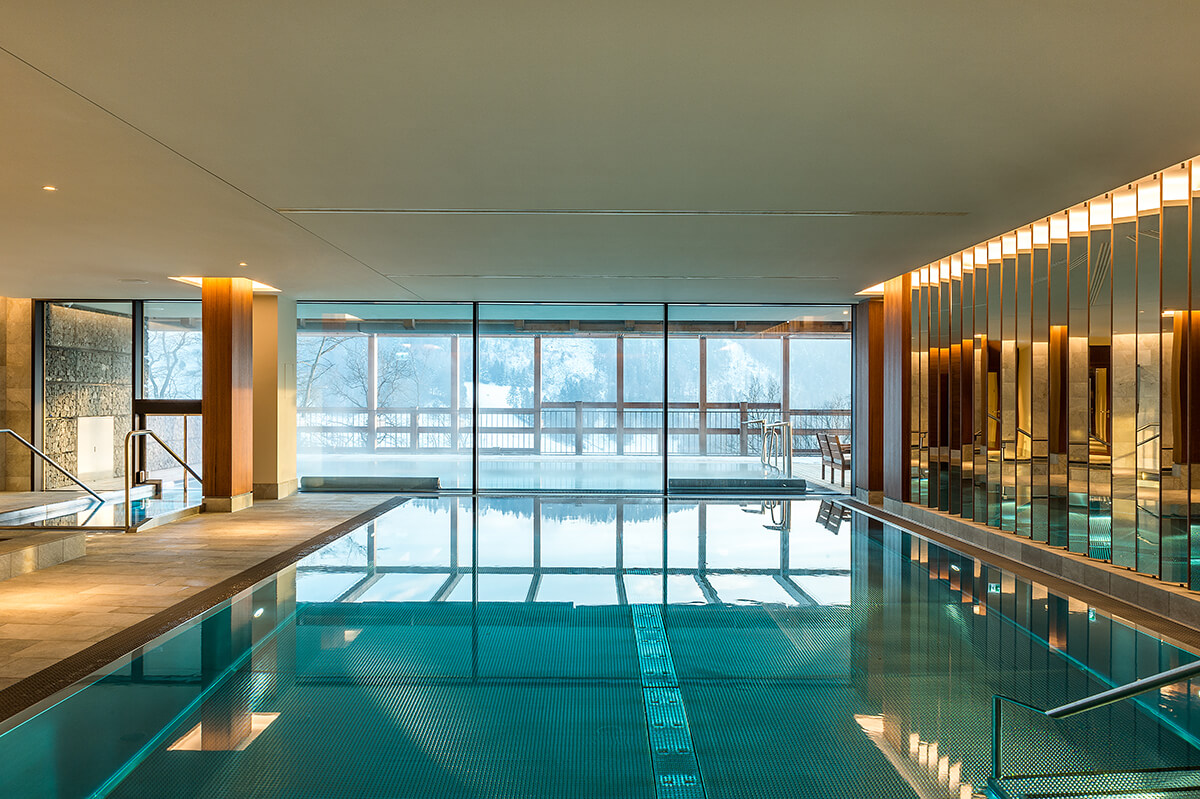
The pool at the Waldhotel, where medical and spa facilities are combined
The resort is a series of buildings, built out and along from the original Palace hotel, along a ridge some 500m above Lake Lucerne. The sharpness of the ridge means you have two completely different perspectives, as if you are on a movie set. In one direction, the mountain drops away almost vertically, through vertiginous forests, into the lake; from the café terrace of the Palace hotel, you can see boats, quays and summer houses far below, like dolls house parts. The lake spreads out with Lucerne itself sprawling at one end, and beyond, numerous ridges of hills behind which other lakes alternate with forest and meadow, all the way to Germany in the distance.
In the other direction, there is almost no drop at all: just a gentle bowl of high Alpine pasture, fluorescent green, cows tinkling their bells, giving way to forest beyond, and then neck-strainingly high peaks, covered with snow even in mid-summer, in the far distance.
Read more: A VIP ferry ride from Dover to Calais with DFDS
My hotel room had the latter view, which was very relaxing. The room was large, modern and coolly decorated in blonde woods and taupe furnishings, with a big balcony on which you could relax with a cigar at night (having done your lung function test already, of course) and feel the sounds and smells of the meadows.
The medical centre was just a few floors down. My blood was taken efficiently in a lab-like room, and I went off for breakfast on a roof terrace with a wider view of the meadow and mountain side of the resort. There are no hints here that you are in a place where you must deny yourself; the breakfast provided everything from pancakes and omelettes à la carte to home-made cornflakes. I spent the rest of the day swimming in the main pool in the Bürgenstock hotel, a five-minute walk away through the resort, and gaping at the quite astonishing view from its wraparound spa pool which overhangs the cliff face down to Lake Lucerne. Dinner at Sharq, along the ridge, had equally magnetic views, as day turned to dusk and the lights of one of the world’s richest areas popped up all around below us. Sharq serves Persian and Lebanese cuisine, and its khoresh dishes and marinaded grills were as good as any Persian restaurant’s, anywhere. The wine list focuses on Lebanese wine, but you can also order from the main restaurant list.
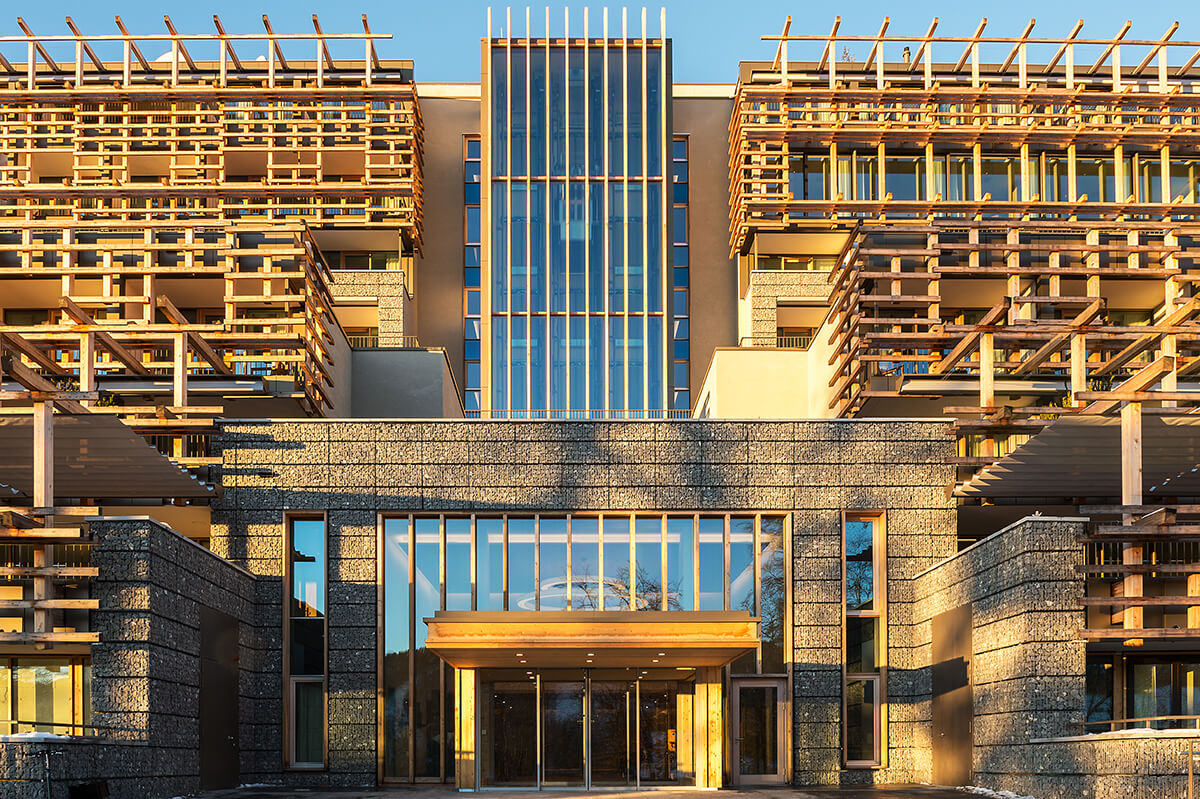
The entrance to the Waldhotel, newly built in 2017
The next day, Dr Verena Briner, head of the medical centre and one of the country’s most prominent physicians, went through my blood test results with me. Page after page of measurements revealed – nothing at all. I was fine. I didn’t even need an oil change. But that was just the beginning. She handed me over to a consultant cardiologist, who put me through a variety of physical exertions while examining my heart with an echocardiogram. All fine. Next, I was scanned for bone density, and body fat vs body muscle. All fine, despite the Persian meal the previous night. A lung function test was OK also, meaning the cigar was on the cards that night. A full pass, with no red flags, or even yellow lights. After all that effort, I was almost disappointed – but not, of course, and no medical can test for absolutely everything that could be wrong with you – but Bürgenstock did well, all while I was having a fabulous holiday.
On the last night, I celebrated at Spices, the Bürgenstock’s flagship restaurant, which is cantilevered over the cliff’s edge. You could pick between Cantonese and Japanese, and all the lights below added to a Hong Kong vibe. It was astonishing, but true: one of Europe’s most spectacular contemporary luxury experiences is also home to a brilliant medical spa.
Vital Statistics
Dr Verena Briner, Medical Director of the Bürgenstock Resort, on the key elements you have to be aware of to ensure a long and healthy life, and how they are tested
The basic check-up focuses on the most common diseases. The programme includes taking the patient’s history and conducting a clinical examination. We screen for diseases that affect the blood (eg. anaemia), the liver and kidney, metabolism (such as diabetes and atherosclerosis), and vitamin deficiency. We measure blood pressure, run an ECG, use bone densitometry to identify any risk for osteoporosis and carry out an ultrasound scan of the abdomen. For anyone over 45, a colonoscopy is recommended as carcinoma of the gut becomes more likely as we get older. The lung function test may show signs of smoking-induced damage. Measuring body mass index and body composition is important, too, as obesity often leads to high blood pressure, diabetes, impaired lipid metabolism, sleep apnea (snoring) and arthrosis in the joints.
We check also for cardio-vascular diseases, of which the majority of the population of the Western world die. Since the development of interventional cardiology, people rarely die from a sudden heart attack but are much more likely to have a chronic condition such as atherosclerosis of the blood vessels, which may be treated with drugs, angioplasty, stents or bypass operation. The risk factors that accelerate atherosclerosis include high blood pressure, diabetes, being overweight, smoking, high cholesterol, and little or no physical activity. A history of coronary artery disease in the family increases the chance that the patient will develop it as well. The cardiologist supervises a stress test and uses echocardiography to spot any impaired heart muscle function. If there are signs of reduced blood flow in the coronary arteries, we recommend a coronarography or a heart CT scan.
The Waldhotel works with the Lucerne central hospital where this can be done. Anyone short of time may prefer to come to the Waldhotel Medical Centre where we can organise all the tests during their stay.
Book your stay: buergenstock.ch
This article was originally published in the Winter 19 issue.

